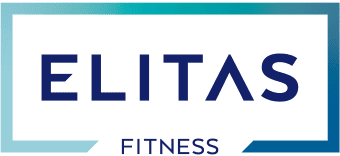6 OF THE MOST COMMON FAT LOSS MYTHS
Everybody wants to lose body fat at some point in their lives, and it can be incredibly frustrating for people to work so hard, seeming to do all the right things, yet still failing to achieve the lean physique they desire.
Unfortunately, the barrier for entry into the fitness industry is abysmally low and this has led to many so-called professionals touting myths and misconceptions surrounding the subject of fat loss which adds to the confusion.
Here are 7 of the most common myths surrounding the subject of fat loss.
Myth 1: Aim for higher reps when looking to cut body fat.
The problem with this paradigm is that training exclusively with higher reps, as you do in traditional classes and circuits (20+ reps) will provide little stimulus to the body, especially to the type 2 muscle fibres (which possess approximately a 50% greater capacity for growth than type 1).
When training our clients for transformations, we place a strong emphasis on developing muscle mass and strength through weight training by using multi joint compound exercises with greater loads. This includes exercises such as barbell squats and deadlift variations. For optimal progress we like to train as heavy as form, technique and physical competence will allow whilst performing a wide variety of rep ranges. Simply performing higher reps with baby weights won’t cut it. The muscles will burn and you will get sweaty but little long lasting physiological changes will occur.
By avoiding heavier lifting when training for fat loss, you risk losing lean mass and slowing down your overall metabolic rate, which will reduce the number of calories your body burns in a resting state.
In fact, one of the best variables to track when on a fat loss protocol is strength. If you can maintain or build strength whilst the scales show a drop in weight, we know the diet and training structure is working, and it’s likely that you are maintaining muscle mass, which is essential for giving the body shape and keeping you healthy and your metabolism raring.
If strength takes a sudden hit and training looks lacklustre, we know that something isn’t quite right. By emphasizing exercises with rep ranges of between 5 and 12 we can maximize the effectiveness of your training whilst keeping things varied and interesting.
Myth 2: Training on an empty stomach is optimal for fat loss.
Research has proven that training on an empty stomach has little to no effect on the amount of fat burned during a training session. From experience, having worked with hundreds of clients I have found that training on an empty stomach is more a matter of preference and is not necessary for optimal fat loss training. I have found that many people prefer fasted training particularly if they are prone to nausea, GI distress or if they are a typical early bird. It is generally more important to have the rest of your nutrition in a good place as irregular blood sugar levels and insulin resistance can lead to a massive dip in energy during sessions, which reduces the quality of training.
Whether you are training early morning or later in the day there are many pre-workout nutrition tips and tricks which can optimize your progress and this is something we tailor to our clients and at the times which best suit their schedule and lifestyle.
Myth 3: Training more frequently is more effective for fat loss.
If training 4 times per week is good for fat loss then training twice per day, every day is better right?
In the hopes of accelerating their results, many people fall into the trap of working themselves into the ground to get the body they want. Training hard every single day, sometimes twice per day can seem attractive if you are looking for fast results but often this can be counterproductive.
What we see so often with the clients we deal with is that if you don’t tailor training frequency, type and volume to a person’s daily life then they often set themselves up for failure. Our body has a finite capacity to recover and adapt to stress. If we train too much, too often with too little fuel and with added stress such as a busy work schedule and a disturbed sleeping pattern, our bodies will usually tell us in one way or another that we’ve gone too far.
If this sounds like you, you probably need to pull back a little. Inability to sleep, depression, low energy and lack of drive are common signs. A training regime that is too difficult and unsustainable will cause you to revert back to your old ways and lose any progress made. You must enjoy what you do!
The majority of people would do really well to train with solid intensity, structure and progression a total of 4 times per week. However, it is important to take into account individual circumstances: some people will do better with less training and some with more.
Myth 4: Perform Cardio before you train with weights.
Many people like to hop on the treadmill or cross trainer before they hit the weights and this can be counterproductive for your fat loss goals
Doing a tonne of cardio before hitting the weights will always negatively affect your ability to lift weights optimally. Higher levels of lactate and Co2 in the blood stream inhibit your muscles’ ability to contract and produce force and this will lead to an inability to optimize the amount of lean mass you are able to build or maintain
In an ideal world, splitting resistance style training and traditional cardio training would be best. For those constrained by time always get your resistance work in first and try to limit the length of your training to 75 minutes or less. Any longer and I would question the intensity of your training.
Myth 5: Direct ab training will give you a sculpted stomach
This is one of the most perpetual myths out there. It is often exaggerated by the fact many class instructors love to give their customers tonnes of sit ups, planks and crunches as it really feels like you are targeting your abs when working out. This is unfortunately a mistake and takes a lot of time and focus away from more productive training.
The real truth lies in how effective your diet and nutrition are both in terms of calories and macronutrients but also adapting your diet to reduce bloating and water retention. It has been proven countless times that direct training to a muscle group will not lead to a spot reduction in fat at that site. It is entirely psychological, which is why we always take time to educate and guide our clients so that they have the knowledge and tools to make good decisions with their training and nutrition.
Myth 6: Longer aerobic cardio is most effective for fat loss.
There seems to be a persistent myth surrounding the idea that shorter duration cardio training is less effective for fat loss. There seems to be this idea that there is a particular magical heart rate zone where you burn more body fat (typically believed to be between 60 and 70% max heart rate). Some studies which appear to support this notion have actually been misinterpreted as your body does in fact burn a greater PERCENTAGE of fat at lower intensities but in fact burns fewer total calories. Most people would do better to perform more sprint or interval-based training where you are working at higher heart rates but for drastically shorter periods of time. There is however a limit to how much sprint-based training you can do as it can take longer to recover from so it is generally best to blend a little of the two types of training and gravitate towards what you enjoy the most.
The same can be said for the mode of cardiovascular exercise. You don’t have to be a slave to the treadmill or bike. Keeping your training varied and interesting can be very important to adherence. Without adherence it doesn’t matter how brilliant your training programme is, it won’t work! This is one reason why we have such a wide range of different kit in the functional training area of our Chichester gym – prowlers, sleds, battle ropes, farmer’s carry handles, kettlebells, power bags etc.
If you would like to work alongside industry leading fitness professionals who can tailor a bespoke and individual programme to suit your fat loss goals then please feel free to email us at [email protected].
David



